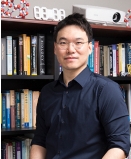- Level Professional
- Duration 32 hours
- Course by Korea Advanced Institute of Science and Technology(KAIST)
-
Offered by

About
An appreciation of thermodynamics is required to become a chemical and biomolecular engineer. Thermodynamics can assess the viability of a process and is one of the curriculum's most essential topics. The principles are utilized in following engineering courses (kinetics, mass transfer, design, materials) and are applicable to numerous engineering disciplines. The increased emphasis on energy usage and transformation as a result of rising demand, diminishing supply, and global warming necessitates that the engineers who will tackle these issues have a firm grasp of thermodynamics. The first and second laws will be studied in this course. Non-ideal features of single-component and multicomponent systems will be emphasized. A substantial portion of the course is devoted to solution thermodynamics, which is crucial for separations (e.g., distillation, extraction, membranes), and chemical equilibrium, which is crucial for reaction engineering. "A theory is more striking when its premises are simpler, when it relates more diverse types of things, and when its scope of applicability is broader. Consequently, the profound impact that classical thermodynamics had on me. It is the only physical theory with universal content that I am confident, within the range of its applicability, will never be overthrown." — Albert EinsteinModules
Week 1
1
Assignment
- Quiz 1.
3
Videos
- 1-1 The Framework of Solution Thermodynamics (Intro)
- 1-2 Fundamental Property Relation
- 1-3 Chemical Potential and Phase Equilibrium
1
Readings
- Quiz 1. Problem & Solution
Week 2
1
Assignment
- Quiz 2.
3
Videos
- 1-4 Partial Molar Properties
- 1-5 Ideal Gas Mixture Model
- 1-6 Mixing Properties
1
Readings
- Quiz 2. Problem & Solution
Week 3
1
Assignment
- Quiz 3.
4
Videos
- 1-7 Fugacity and Fugacity Coefficient (Gas)
- 1-8 Fugacity and Fugacity Coefficient (Solution)
- 1-9 Ideal Solution Model
- 1-10 Excess Properties
1
Readings
- Quiz 3. Problem & Solution
Week 4
1
Assignment
- Quiz 4.
3
Videos
- 2-1 Vapor Liquid Equilibrium for Pure Species
- 2-2 Lewis/Randall Rule
- 2-3 Phase Equilibrium
1
Readings
- Quiz 4. Problem & Solution
Week 5
1
Assignment
- Quiz 5.
2
Videos
- 3-1 The Gamma/Phi Formulation of VLE
- 3-2 Simplification of VLE
1
Readings
- Quiz 5. Problem & Solution
Week 6
1
Assignment
- Quiz 6.
3
Videos
- 3-3 Raoult's Law(BUBL & DEW P)
- 3-4 Raoult's Law(BUBL & DEW T)
- 3-5 Modified Raoult's Law
1
Readings
- Quiz 6. Problem & Solution
Week 7
1
Assignment
- Quiz 7.
2
Videos
- 3-6 Properties from VLE Data
- 3-7 Fitting Activity Coefficient Models to VLE Data
1
Readings
- Quiz 7. Problem & Solution
Week 8
1
Assignment
- Quiz 8.
1
Videos
- 3-8 VLE Data Reduction
1
Readings
- Quiz 8. Problem & Solution
Auto Summary
Dive into the essential principles of thermodynamics with "Chemical Engineering Thermodynamics 2," a comprehensive course designed for aspiring chemical and biomolecular engineers. This course provides a deep understanding of thermodynamic concepts critical for assessing process viability and is foundational for advanced studies in kinetics, mass transfer, design, and materials science. Key topics include the first and second laws of thermodynamics, with a focus on non-ideal behavior in single-component and multicomponent systems. Special emphasis is placed on solution thermodynamics, vital for processes like distillation and extraction, and chemical equilibrium, crucial for reaction engineering. Guided by industry-leading instructors from Coursera, this professional-level course spans 1920 minutes, offering a robust and thorough exploration of thermodynamics. Subscription options include Starter and Professional plans, catering to different learning needs and career aspirations. Ideal for those committed to addressing contemporary challenges in energy usage and transformation, this course equips engineers with the knowledge to make impactful contributions in their field. Join today and build a solid foundation in thermodynamics, ensuring you're prepared to tackle the pressing issues of rising demand, diminishing supply, and global warming.

Dong-Yeun Koh

